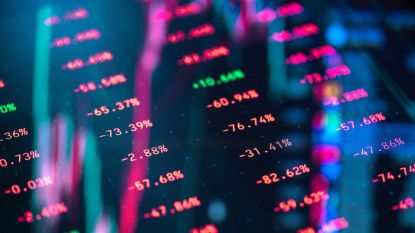Stocks opened Friday in positive territory, but the price action quickly shifted after a worse-than-expected reading on consumer sentiment.
Also weighing on Wall Street’s mood was lingering debt ceiling uncertainty after a meeting between the White House and congressional leaders was delayed until next week.
The University of Michigan said its consumer sentiment index plunged to 57.7 in May from April’s 63.5, cutting in half the gains it has made since hitting an all-time low of 50 last June. “While current incoming macroeconomic data show no sign of recession, consumers’ worries about the economy escalated in May alongside the proliferation of negative news about the economy, including the debt crisis standoff,” the report said (opens in new tab). Meanwhile, year-ahead expectations for the economy fell 23%, while long-term expectations dropped 16%.
Subscribe to Kiplinger’s Personal Finance Be a smarter, better informed investor.
Save up to 74%
Sign up for Kiplinger’s Free E-Newsletters Profit and prosper with the best of expert advice on investing, taxes, retirement, personal finance and more – straight to your e-mail.
Profit and prosper with the best of expert advice – straight to your e-mail.
“In addition to deteriorating sentiment and current conditions, expectations plunged to the lowest levels since July,” says Edward Moya, senior market strategist at currency data provider OANDA (opens in new tab). “The consumer is becoming rather grim and if inflation expectations [which, on a long-term basis, hit their highest level since 2011 this month] continue to remain elevated, that could force the Fed to tighten more.”
The latest debt ceiling headlines indicated a meeting between the White House and congressional leaders was pushed from today to next week so that discussions could continue among staffers, said House Speaker Kevin McCarthy (opens in new tab). Treasury Secretary Janet Yellen said earlier this month that the U.S. could default on its financial obligations as early as June 1 if the debt limit is not raised.
“The debt ceiling debate is a big downside risk to the economy,” says Bill Adams, chief economist at Comerica Bank (opens in new tab). “Bonds issued by the Treasury are a basic building block of the American financial system. Nobody can predict what happens if those blocks all crack at the same time.” Adams adds that the deterioration in consumer sentiment will hopefully nudge lawmakers in the right direction, but if the government does end up defaulting, “it won’t be pretty.”
Tesla drops on Twitter CEO newsTen of the 11 sectors finished lower, with consumer discretionary stocks seeing outsized losses. This was due in part to Tesla (TSLA (opens in new tab)) stock, which, after being up nearly 3% in early trading, fell 2.4% by the close following CEO Elon Musk’s announcement that he hired former head of NBCUniversal’s advertising unit Linda Yaccarino to be the new CEO of Twitter. Musk said he will transition to executive chair and chief technology officer of the social media platform.
Still, Wedbush analyst Daniel Ives sees the move as “a positive development for Tesla as well as SpaceX with Musk needing to spend more and more time on these golden child platforms rather than Twitter.”
As for the major indexes, the Dow Jones Industrial Average shed 0.03% to 33,300, the S&P 500 finished down 0.2% at 4,124, and the Nasdaq Composite lost 0.4% to 12,284.
Powell, retail earnings on tapSo what’s in store for next week? Debt ceiling headlines will likely spark plenty of chatter on Wall Street. Additionally, investors will weigh several key economic reports – including Monday’s Empire State manufacturing index – and sift through an onslaught of speeches from Federal Reserve officials in an attempt to see what the central bank’s future plans for interest rates might be. Most notably is a Friday morning speech from Fed Chair Jerome Powell.
There are also several major retailers on next week’s earnings calendar, which could give clues to how rising prices are impacting consumers’ spending behavior.
